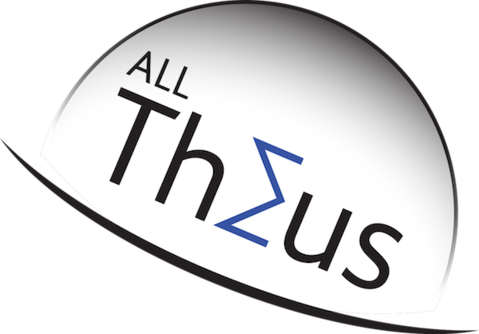
AllTheus seeks to promote:
- an interest in science, technology, engineering and mathematics (STEM), including how these fields are interacting with art – (thankfully giving us a wider STEAM-powered world);
- a better Starship Earth with a greater recognition of its supporting complex systems that transcend bigotry and narrow national, sectional or hedonistic interests;
A few links to sample at your leisure include:
http://www.abc.net.au/news/2016-03-04/alan-alda-on-art-and-science/7220536
http://www.abc.net.au/local/stories/2016/03/15/4425193.htm
(Around 31 min has a great insight into being in the moment and from about 46:30 min in Alan Alda continues his interesting chat referencing C P Snow’s two cultures of science and art).
The Infinite Monkey Cage, BBC 24 Jul 2012, Science VS Art episode https://itunes.apple.com/au/podcast/the-infinite-monkey-cage/id343580439?mt=2&i=1000118462672
AllTheus will evolve a curated set of links to different websites, podcasts and other material. The blog will generally be updated once a month.
We also aspire to grow a community of like-minded people on Starship Earth who promote and help develop linkages to groups with aligned interests or desires. Some AllTheus visitors will be casual, others more committed “keen idiots” (very interested in STEAM subjects and still learning per the BBC’s The Infinite Monkey Cage 30 Nov 2010 http://www.bbc.co.uk/programmes/b00p29kc ). We welcome you all!
We aim to fund AllTheus activity by selling quirkily humourous, interesting, thought-provoking & / or enjoyable designs whilst we develop the concept and the alltheus.com website. We intend using a portion of profits to support selected charities aiming to boost education. Our current favourite is: http://www.roomtoread.org/ whose vision closely matches our own namely “…envision a world in which all children can pursue a quality education, reach their full potential and contribute to their community and the world.”
Where Does the Name “AllTheus” Come From?
Have you ever looked up in awestruck, even numinous (look it up ☺), wonder at the heavens?
The Apollo 8 space flight first showed us our stupefyingly beautiful blue marble Earth (http://www.nasa.gov/multimedia/imagegallery/image_feature_1249.html & http://www.ciclops.org/view/7699/The-Day-the-Earth-Smiled} against the immense inky blackness of space rising over the lunar surface. It put our planet - our Starship Earth - into a vast, visual cosmic context. {An upcoming design is named – “Love The World You’re On”}
Chris Hadfield (the Canadian astronaut - http://www.abc.net.au/radionational/programs/latenightlive/an-astronaut27s-guide-to-life3a-chris-hadfield/5653184 ) outlined this perspective of Starship Earth by contrasting the experience of a view inside a tall building versus being suspended outside the same building. Both Chris Hadfield and Dr Alexander Gerst (German astronaut mentioned they started referring to everyone as “us” whilst in space - honouring our common humanity. Dr Gerst also noted a changed perspective of what the German word heimart (roughly equivalent to home although the German is richer) means.
Our precious planet – our Starship Earth – is, according to Carl Sagan, where our hearts are. We all want some laughter, some grace, a better chance for us and our children as well as perhaps hope to understand the universe (or multiverse) a little better.
The Apollo 14 astronaut Edgar Mitchell also encouraged a more global outlook saying “You develop an instant global consciousness, a people orientation, an intense dissatisfaction with the state of the world, and a compulsion to do something about it. From out there on the moon, international politics looks so petty. You want to grab a politician by the scruff of the neck and drag him a quarter of a million miles out and say, “Look at that you son of a bitch.”
Conversely the Canadian astronaut Juliette Payette had a different response to seeing Earth from above:
Q: Did looking down on Earth change the way you view the world?
A: We get this question so much. People are hoping we’re going to say, “Yes.” I think it’s a myth. Most astronauts are very down-to-earth people. Many of us, three-quarters, have an engineering degree, and we have a very Cartesian, rational approach to things. You don’t go and get swept off your feet. That’s not your job and that’s not why you’re hired. So if you get so mesmerized that you forget to do what you’re supposed to do, whether it’s to open the cargo door of the space shuttle or configure something inside, then you should not be there as a professional operator.
When I saw the Earth from above, personally, as a spacecraft operator, it certainly reinforced and drove home the fact that there’s one place where we can live right now. The seven billion of us are sharing a wonderful planet, and it’s an absolute privilege to see it from above.”
This “us” is The-us: AllTheus is the past, present and future crew of Starship Earth. At its widest it includes us all from the tiniest bacterium (sorry virus’s - the court is still out on you!) to the largest blue whale and tree. AllTheus conveniently resonates with deus – we all carry our ‘god(s)’ inside us, around Starship Earth and through space-time as we live and travel! (another upcoming design is “Alltheus – like Deus but more human(e)”
Only a lucky few of AllTheus have enjoyed a panoramic view of Spaceship Earth from above and a smaller subset still seen Spaceship Earth shrink to a small disc on their lunar missions. The fun aspects of space flight are being touted by Virgin Galactic and others. The research, development and technology supporting space flight has many side benefits. (List some)
Space programs almost by definition operate at the frontier of what is possible built on the contemporary accumulated knowledge and wisdom but that still needs new discoveries and knowledge to be developed to provide engineered solutions. Economics frequently assumes perfect information and its frictionless information flow. The advantages of improved information collection, dissemination and analysis and, critically, cross-disciplinary collaboration still has huge societal upside. The potential for the internet and other social, scientific and technical advances to reduce the frictional costs of data collection, information formation and collaborative sharing in a more complete way arguably far exceeds that consequent to the introduction of printed books, electricity or fertilisers. Arguably too a big benefit is the more intangible aspirational energy and excitement driving new discoveries, methods and ideas.
In this environment it is unfortunate that the Science, Technology, Engineering and supporting Mathematics (STEM) subjects seem unpopular with many of today’s students and even some teachers. The false perception that STEM subjects do not require creativity and a perception that art mixes poorly with STEM disciplines is tragic. A STEAM powered societal revolution will be even more enriching than art or STEM alone. Some green shoots do thankfully signal a gradual change in attitudes.
It is tragic to think of how many Einstein-like intellects we have failed to enable to reach their potential given our failure [through a lack of ambition, drive, political and social will or focus] to provide global access to effective and efficient education resources. How many problems remain unresolved because of this underdevelopment and poor usage of the capabilities of Starship Earth’s human crew? Join us on the journey by following this blog or on Twitter @alltheusonlbd (Alltheus On Little Blue Dot) or just research and donate to www.roomtoread.org.

